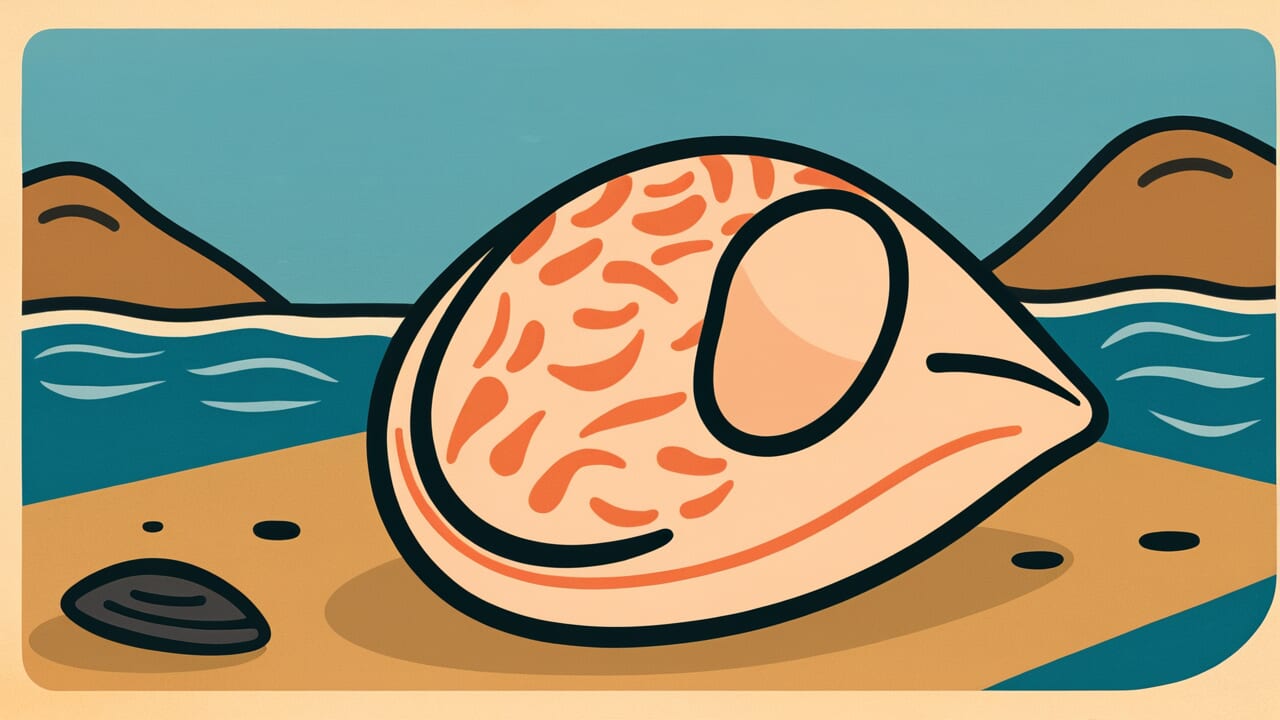How to Read “One conch shell over a thousand clams”
Shijimi sen yori horagai hitotsu
Meaning of “One conch shell over a thousand clams”
This proverb means it’s much better to have one valuable thing than many small things.
It teaches us that what truly matters is not quantity but quality. We often get distracted by large numbers.
People use this saying when making choices or thinking about where to focus their efforts.
For example, when advising someone to study one field deeply rather than learning many things superficially.
Or when explaining that buying one good item is wiser than buying many cheap things.
In modern society, we’re surrounded by endless information and products. We easily fall into thinking “more is better.”
However, this proverb teaches the importance of recognizing true value. A thousand clams certainly have worth.
But they cannot replace the unique value of one conch shell. This saying asks us to live by valuing quality over quantity.
Origin and Etymology
No clear written records explain the origin of this proverb. However, we can learn much from examining its elements.
Shijimi are small freshwater clams found widely in Japanese rivers and brackish waters.
They’ve long been a familiar food for common people. Even today, people love them in miso soup.
The conch shell, on the other hand, is a large sea snail. Mountain monks called yamabushi have used it as a horn since ancient times.
Its sound echoes through the mountains. It played an important role in mountain ascetic rituals and as a signal.
This contrast reflects Japanese values deeply. Clams are delicious and nutritious, but each one is tiny.
Even a thousand clams cannot match one conch shell in weight or presence.
The conch shell has not only size but also a special function: it makes sound. It carries religious and cultural meaning too.
This proverb cleverly expresses the universal theme of quantity versus quality using familiar shells.
It was born as a concrete, easy-to-imagine teaching unique to Japanese people who lived close to seafood.
Interesting Facts
The conch shell wasn’t just an instrument. Its value was determined by how loud it could sound.
A quality conch shell could carry sound several kilometers away. Mountain monks treasured them as communication tools in the mountains.
Because of their rarity and usefulness, a single conch shell was extremely expensive.
Clams have been known as health food since ancient times. There’s a saying: “Summer clams are stomach medicine.”
Clams harvested during the summer doyo period are especially nutritious. They’re considered good for the liver.
Though small clams have real value, this proverb says one conch shell is still more valuable. This makes the message powerful.
Usage Examples
- Rather than getting ten certifications, mastering one specialty is “One conch shell over a thousand clams”
- Buying one quality coat instead of many cheap clothes is truly “One conch shell over a thousand clams”
Universal Wisdom
Behind this proverb lies a fundamental human dilemma. We instinctively feel secure with “more.”
Having many things makes us feel rich. Knowing many things makes us feel smart.
But our ancestors realized something important. True richness cannot be measured by numbers.
Why do people seek quantity? Because quantity is visible and easy to understand.
A thousand clams clearly feel like “a lot.” But the value of one conch shell only becomes clear when you hear its sound.
When you understand its role. In other words, recognizing value requires wisdom and experience.
This proverb teaches us what human maturity means. When young, we’re obsessed with collecting numbers.
But eventually we realize something. What truly matters isn’t actually that numerous.
One deep friendship. One solid skill. One unshakable belief. These are the conch shells that support our lives.
The courage to choose quality over quantity. Only people who know what truly matters to them can have this courage.
This proverb teaches this life wisdom through the familiar material of shells.
When AI Hears This
If you shake a thousand clam shells together, they only make a “jangle-jangle” noise.
But blow one conch shell, and it produces a clear sound that carries several kilometers. This difference can be explained by acoustic energy concentration.
Clam sounds have scattered frequencies that spread in all directions. In acoustic physics, this is called an “omnidirectional sound source.”
Even with a thousand clams, each produces different frequencies in random directions. The energy disperses throughout the space.
It’s like a thousand people talking about different things simultaneously. In information theory, this has high entropy—it’s disordered and unpredictable.
The conch shell, however, focuses low frequencies of 100 to 300 hertz in one direction through its tube shape.
This frequency range doesn’t decay easily in air. It also bends around obstacles.
More importantly, it carries “ordered information” as a single frequency pattern. The human brain instantly recognizes this regularity as a “meaningful signal.”
In other words, one ordered energy is overwhelmingly superior to a thousand disordered energies for information transmission.
This follows the same principle as communication technology that reduces noise and focuses signals.
Lessons for Today
This proverb teaches modern people the importance of selection and concentration.
In today’s information-flooded era, we unconsciously aim to “have more.” Social media followers, certifications, experiences.
But stop and think. Are these truly enriching your life?
What matters is identifying what your “conch shell” is. It might be work you’re truly passionate about.
It might be a friend you deeply trust. It might be one skill you’ve polished over time.
Carefully nurturing such valuable things that are uniquely yours—that’s the way of life this proverb wants to convey.
Even if others seem to have many things, you don’t need to rush. You have your own conch shell.
Finding it, polishing it, and cherishing it. This proverb gives you the courage to choose such a life.
A life pursuing quality rather than quantity will surely lead you to deep satisfaction.



Comments